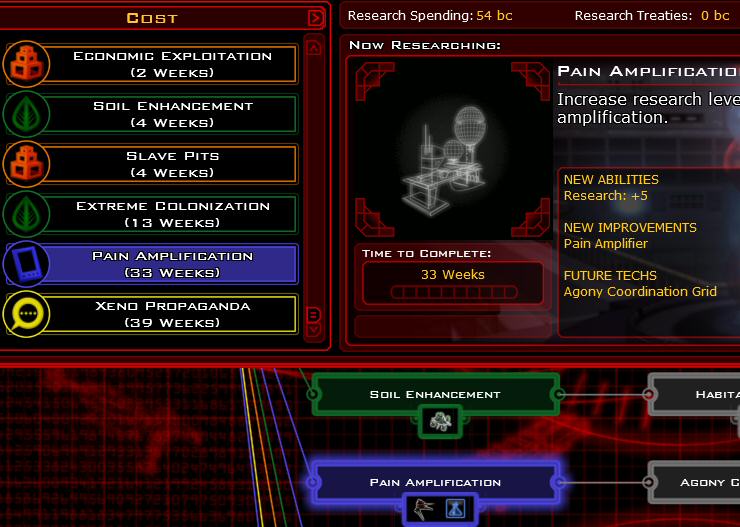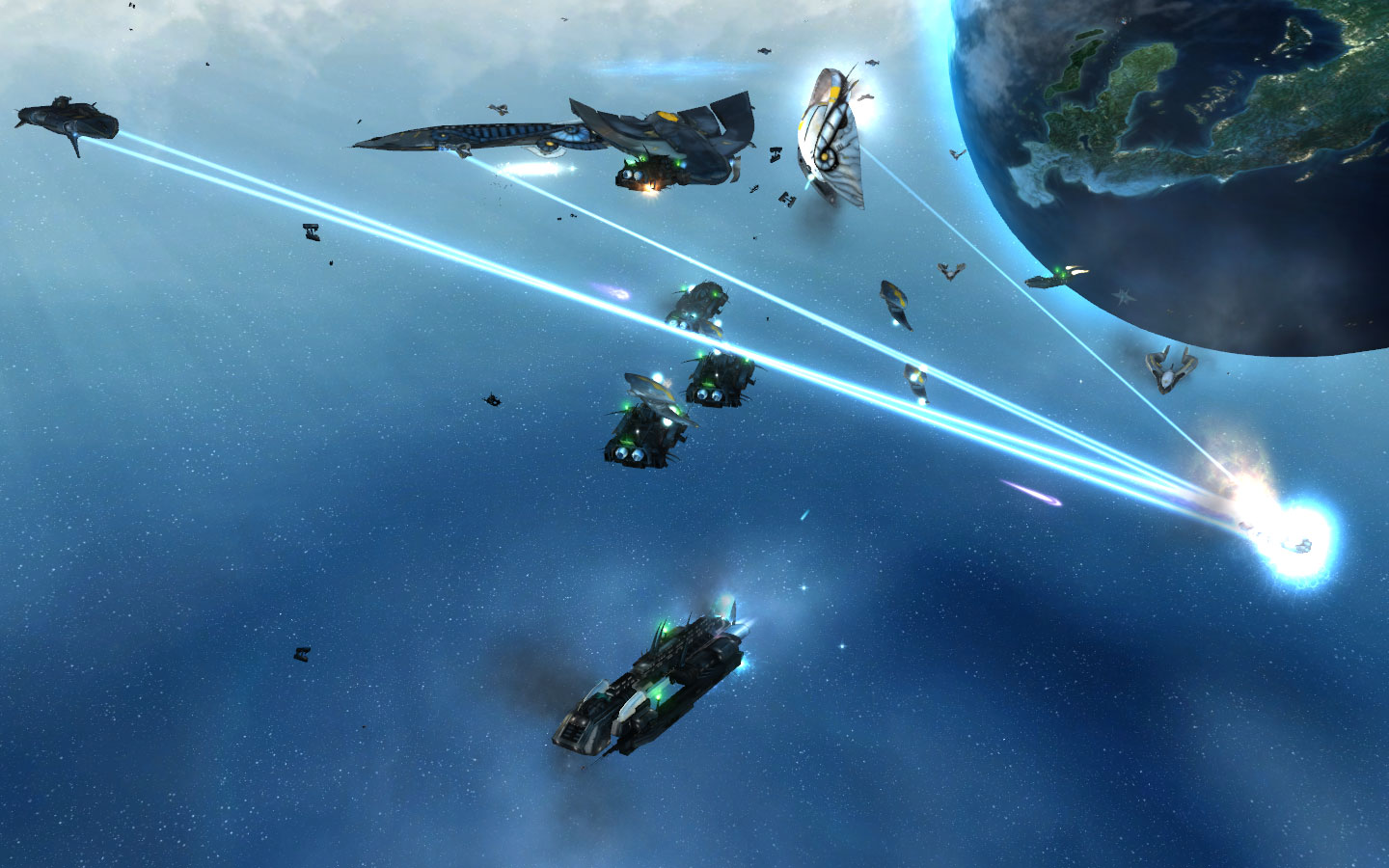Although many space strategy gamers are already familiarized with the term “4x” I decided to create an article in order to help introduce the concept for the so many that don’t know yet what it stands for and also to clarify a bit the concept for the so many also that think they know what it stands for but are not completely sure about it (before I wrote the article I was included in this last bunch :)) – but it gets confusing sometimes, well, keep reading).
In the gaming world “4X” stands for: “eXplore, eXpand, eXploit and eXterminate”. The ‘4X’ concept is well covered in the wikipedia here. Essentially the games that are catalogued as ‘4X’ must, at least, possess the following characteristics (or provide the following phases):
- “eXplore”: means is the early phase of the game where the players scout across a map to reveal the surrounding territories.
- “eXpand”: stands for the phase where the player already knows the surrounding territory enough and is ready to start claiming that new territory by creating settlements, outposts or simply by increasing its influence over that territory like for example by increasing its population, by increasing trade range or map reach.
- “eXploit”: In this phase the player is ready to start gathering resources from the areas under his control. The idea is to be as quick and efficient as possible to control these resources since they normally are limited and as more you have less your enemies will have left.
- “eXterminate”: When the territory is almost but claimed and the available resources controlled, the only way to expand is … to get more terrain and more resources and normally this means the need to make war with an opponent in order to subdue him (by turning it into a protectorate or vassal) or to destroy him completely.
Sounds familiar?
Other fundamental characteristics of a ‘4X’ game
The player usually plays the role of a Ruler of some sort normally with absolute power, like a King, Emperor or a Bureaucrat. This ruler stands by a race, country, species, civilization or some nation and his objective is to grow and develop it. The society normally has a humble beginning and part of the excitement of ‘4X’ games is to be able to transform this humble beginning in an ultimate power, where the level of knowledge, technology and expansion becomes so great that the player finally achieves victory.
Victory may come through many ways: By complete annihilation of all opponents; by diplomatic achievement via peaceful agreements with all opponents (through alliances with all other players subdued to a single alliance); by some degree of domination (like 2/3 of a galaxy, map, and planet, whatever the scope, is conquered). Other means to victory may include special achievements like “building the spaceship” in Civilization, or to unlock ultimate technologies (in Galactic Civilizations II) or being elected supreme leader by the majority of the other players due to a very powerful influence.
Research and technology are key concepts in 4X games. Deeply intertwined with the player’s hope to succeed is its unavoidable need to evolve, and normally this means the need to acquire more knowledge and more technology. By allocating resources to research the player can unlock new technologies which will translate in more comfort for its citizens, more resource management efficiency, more speed, more shields, more weapons, units, etc.
Diplomacy is another key aspect of ‘4X’ games. By the time the player is well advanced in its ‘eXpansion’ it will unavoidably bump into a neighbor and after a while into some more neighbors. The ability to make diplomacy with adjacent factions may determine the player’s race future. By “playing the cards right” the player may gain access to more resources by peaceful means which normally is much less expensive. Diplomatic relations like non-aggression pacts, trade, economic or research pacts can normally be established to achieve this. Alternatively the player may decide it’s more profitable to forge alliances with other players and go to war with others to exploit and exterminate them in order to secure their resources and their territory.
Combat is also an important aspect of ‘4X’ games for where it is in combat that normally all is decided. The ability for the player to win battles may decide wars and the survival of the society all together. To be able to wage well in war the player must do well in many areas. Must have a strong economy to support its units, must keep up in technologies not to become obsolete and it needs not only to be an effective attacker but it also needs to be able to defend its settlements well from other aggressive players. Battles can be decided automatically (like in Galactic Civilizations) or be highly tactical that require more strategic decision from the player (like in Master of Orion that puts the player in full command of all units).
What is ‘4X’ and what’s not
Although almost ‘4X’ games are of the space strategy kind (like Master of Orion, Space Empires, Imperium Galactica, Galactic Civilizations, and so many others), there are other non-space strategy games that, debatably, are considered ‘4X’. Some of these games are Sid Meier’s Civilization series – undeniably ‘4X’, the Colonization series, Age of Empires, Starcraft, Command & Conquer or the TotalWar Series (among others). These last four are examples of games that are debatably ‘4X’. Some players think they should be considered ‘4X’ because they provide the 4 stages, others tend to criticize that they miss other key aspects (like the ones I introduced before) which leads them to “weak” ‘4X’ or definitely ‘non-4X’. You will find in many places some of these games catalogued as ‘4X’ and in another places as non-‘4X’. You will ultimately need to judge for yourself where to draw the line (now you know why I said previously that it could get confusing :) )
‘4X’ Games Lists
You can find good lists of ‘4X’ games in moby games here and in a freeorion forum thread here.
One thing seems undeniable for ‘4X’; being them real time or turn based in terms of gameplay, ‘4X’ games are all of the strategy type. And above all else almost all of them are space strategy games.

3 Comments
Related Articles:
- Innovative Tech Trees in Space Strategy Games
- Space Strategy Games: What’s next?
- Legends of Pegasus: 4x Sci-fi Strategy Game Announced
- A New Way to Explore Planets
- Stellar Indie Venture: Galactic Inheritors










you gave a fascinating introduction of 4x and its very useful for others.
Nice stuff.This is my first time i visit here. I found so many interesting in your blog especially its discussion.Keep your blog updating,good luck…